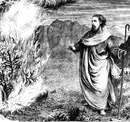LORD HIDE ME FROM ME!!! Psalms 17:5-17:8
This Psalm shows us that IN ALL OF US BIBLE BELIEVING, PEOPLE THERE ARE INCONSISTANCIES,
THERE SHORT FALLS AND FAILURES THAT ARE SELF INFLICTED BY OUR OWN PAST HURTS.
IN READING THIS PASSAGE WE DISCOVER THAT WE ARE AT TIME AN ENEMY TO OURSELVES AND IT’S ONLY THE GOODNESS OF JESUS THAT HE HIDES US UNDER THE SHADOWS OF HIS WING TO KEEP US FROM ABORTING OUR DESTINY OR KILLING THE PROMISE OF GOD IN WHICH HE INPREGNATED US WITH.
Are you aware of the fact that the enemy can NOT steal your destiny YOU are the one who chooses to abort your destiny, YOU are the one who chooses to give it up or give it away.DAVID AT THIS TIME IS RUNNING FROM SAUL AND HAS TO ASK GOD TO:
1)UPHOLD HIS STEPS
2)INCLINE HIS EAR
3)SHOW HIS LOVINGKINDNESS BY YOUR RIGHT HAND (POWER)
4)SAVE HIM
5)KEEP HIM
6)HIDE HIMHE DOES NOT MAKE THIS REQUEST FOR THE LORD TO DO THESE THINGS BECAUSE HE IS CONCERNED ABOUT WHAT SAUL’S POTENTIAL OF HARMING HIM BUT RATHER HIS POTENTIAL OF HARMING SAUL.
How often have you wanted to avenge yourself, how often have you wanted to justify yourself, not just to your enemy but to your wife, your husband? Why do we have this inordinate need to make ourselves heard to make ourselves be the ones to win the argument win the war?
THERE SHORT FALLS AND FAILURES THAT ARE SELF INFLICTED BY OUR OWN PAST HURTS.
IN READING THIS PASSAGE WE DISCOVER THAT WE ARE AT TIME AN ENEMY TO OURSELVES AND IT’S ONLY THE GOODNESS OF JESUS THAT HE HIDES US UNDER THE SHADOWS OF HIS WING TO KEEP US FROM ABORTING OUR DESTINY OR KILLING THE PROMISE OF GOD IN WHICH HE INPREGNATED US WITH.
Are you aware of the fact that the enemy can NOT steal your destiny YOU are the one who chooses to abort your destiny, YOU are the one who chooses to give it up or give it away.DAVID AT THIS TIME IS RUNNING FROM SAUL AND HAS TO ASK GOD TO:
1)UPHOLD HIS STEPS
2)INCLINE HIS EAR
3)SHOW HIS LOVINGKINDNESS BY YOUR RIGHT HAND (POWER)
4)SAVE HIM
5)KEEP HIM
6)HIDE HIMHE DOES NOT MAKE THIS REQUEST FOR THE LORD TO DO THESE THINGS BECAUSE HE IS CONCERNED ABOUT WHAT SAUL’S POTENTIAL OF HARMING HIM BUT RATHER HIS POTENTIAL OF HARMING SAUL.
How often have you wanted to avenge yourself, how often have you wanted to justify yourself, not just to your enemy but to your wife, your husband? Why do we have this inordinate need to make ourselves heard to make ourselves be the ones to win the argument win the war?
FOR THE SAKE OF A DESTINED RELATIONSHIP IT IS BETTER THAT THE BIGGEST HUMBLE HIMSELF AND WATCH GOD WORK ON HIS BEHALF.WHAT IF I SUGGESTED TO YOU THAT THE REASON WHY GOD HAS ALLOWED MANY OF US TO STAY IN OUR MESS IS SO LONG IS BECAUSE WE’RE ALWAYS TRYING TO FIX IT WITH OUR OWN MENTAL ATTRIBUTES INSTEAD OF PRAYING FOR A GODLY OF APPROACH. DAVID KNOWS THAT HE IS WELL CAPABLE OF DOING SAUL GREAT HARM.
IF YOU RECALL DAVID TAKES THE GARMENTS OF SAUL NOT TO DISTURB HIM BUT TO LET HIM KNOW THAT HE DOES HAVE THE POWER,COURAGE AND PASSION TO KILL HIM AT HIS OWN DISCRETION. BUT HE UNDERSTANDS THAT BY KILLING SAUL HE WOULD POSTPONE THE PERFECT WILL OF GOD.
DAVID UNDERSTANDS THE WAY UP IS THE WAY DOWN. DAVID UNDERSTOOD SERVANTHOOD. DAVID UNDERSTOOD SERVING I AM FULLY PURSUADED TO BELIEVE THAT GOD WILL LEAVE CERTAIN PEOPLE IN YOUR LIFE FOR A SEASON TO BE TO BE THE AGITATING FORCE TO BRING YOU TO A PLACE OF PRAYER WE CALL THESE PEOPLE SCOURING PADS. I LOOKED UP THE WORD HIDE (KAW-SAW)IN THE HEBREW AND DISCOVERD THAT IT MEANT TO COVER, OR, IN PROPER, TO FILL UP HOLLOWS.HAVE YOU EVER WENT BEFORE GOD AND TRIED TO WORK ON HIS BEHALF FOR YOURSELF.
COME ON CHURCH WE PRAY WITHTHNE SOLUTION IN M IND TELLING GOD HOW TO SEND THE ANSWER ON OUR BEHALF…….NOW I AM NOT TALKING ABOUT FAITH….
WE NEED TO ASK GOD TO HIDE US FROM OURSELVES , OH "LORD HIDE ME FROM ME."
WE NEED TO DISCOVER THAT BECAUSE OF ALL OF OUR PAST HURTS AND DISAPPOINTMENTS WE ARE OUR WORST ENEMY.
AND WHAT WE NEED IS THE COVERING OF THE LORD NOT FOR THAT MOMENT BUT FOR THE WHATEVER TIME GOD NEEDED TO FINISH HIS ASSESSMENT OF US - AND WHATEVER TIME IT WOULD TAKE TO PROCESS US, I AM HAPPY TO TELL YOU HE’S YET AT WORK IN ME …IS HE AT WORK IN YOU?.
IF YOU RECALL DAVID TAKES THE GARMENTS OF SAUL NOT TO DISTURB HIM BUT TO LET HIM KNOW THAT HE DOES HAVE THE POWER,COURAGE AND PASSION TO KILL HIM AT HIS OWN DISCRETION. BUT HE UNDERSTANDS THAT BY KILLING SAUL HE WOULD POSTPONE THE PERFECT WILL OF GOD.
DAVID UNDERSTANDS THE WAY UP IS THE WAY DOWN. DAVID UNDERSTOOD SERVANTHOOD. DAVID UNDERSTOOD SERVING I AM FULLY PURSUADED TO BELIEVE THAT GOD WILL LEAVE CERTAIN PEOPLE IN YOUR LIFE FOR A SEASON TO BE TO BE THE AGITATING FORCE TO BRING YOU TO A PLACE OF PRAYER WE CALL THESE PEOPLE SCOURING PADS. I LOOKED UP THE WORD HIDE (KAW-SAW)IN THE HEBREW AND DISCOVERD THAT IT MEANT TO COVER, OR, IN PROPER, TO FILL UP HOLLOWS.HAVE YOU EVER WENT BEFORE GOD AND TRIED TO WORK ON HIS BEHALF FOR YOURSELF.
COME ON CHURCH WE PRAY WITHTHNE SOLUTION IN M IND TELLING GOD HOW TO SEND THE ANSWER ON OUR BEHALF…….NOW I AM NOT TALKING ABOUT FAITH….
WE NEED TO ASK GOD TO HIDE US FROM OURSELVES , OH "LORD HIDE ME FROM ME."
WE NEED TO DISCOVER THAT BECAUSE OF ALL OF OUR PAST HURTS AND DISAPPOINTMENTS WE ARE OUR WORST ENEMY.
AND WHAT WE NEED IS THE COVERING OF THE LORD NOT FOR THAT MOMENT BUT FOR THE WHATEVER TIME GOD NEEDED TO FINISH HIS ASSESSMENT OF US - AND WHATEVER TIME IT WOULD TAKE TO PROCESS US, I AM HAPPY TO TELL YOU HE’S YET AT WORK IN ME …IS HE AT WORK IN YOU?.
"BUT GOD" THE COVERER OF OUR FAULTS - THE GOD WHO EXPOSES ONLY YOUR INTENT AND HIDES AND HIDES YOUR FAULTS, THAT YOUR FAULTS WON’T DESTROY WHERE YOU’RE GOING BECAUSE OF WHERE YOU’RE AT.
I HAVE LEARNED THAT BECAUSE GOD IS GOD HE WILL HIDE YOU FROM YOU TO SAVE YOU THAT HIS PURPOSE, PLAN AND WILL WILL BE DONE. IT WAS THROGH PRAYER, FASTING AND CONCECRATION THAT GOD IS ABLE TO PROCESS US THOUGH OUR PAIN.I PRAY THAT WE ANALYZE OURSELVES - EXAMIN OURSELVES FROM THE INSIDE OUT AND SEE WHAT WE ARE HOLDING ON TO THAT KEEPS PULLING US OUT OF OUR PURPOSE.
IS IT ANGER, DEPRESSION,ABANDONMENT,ETC. WHATEVER IT IS KNOW THAT THE ALL POWERFUL GOD IS CAPABLE OF GIVING YOU ALL THE TOOLS TO FIGHT THIS BATTLE. HE GAVE THEM TO DAVID THUS SHALL HE GIVE TO YOU.
GOD BLESS



